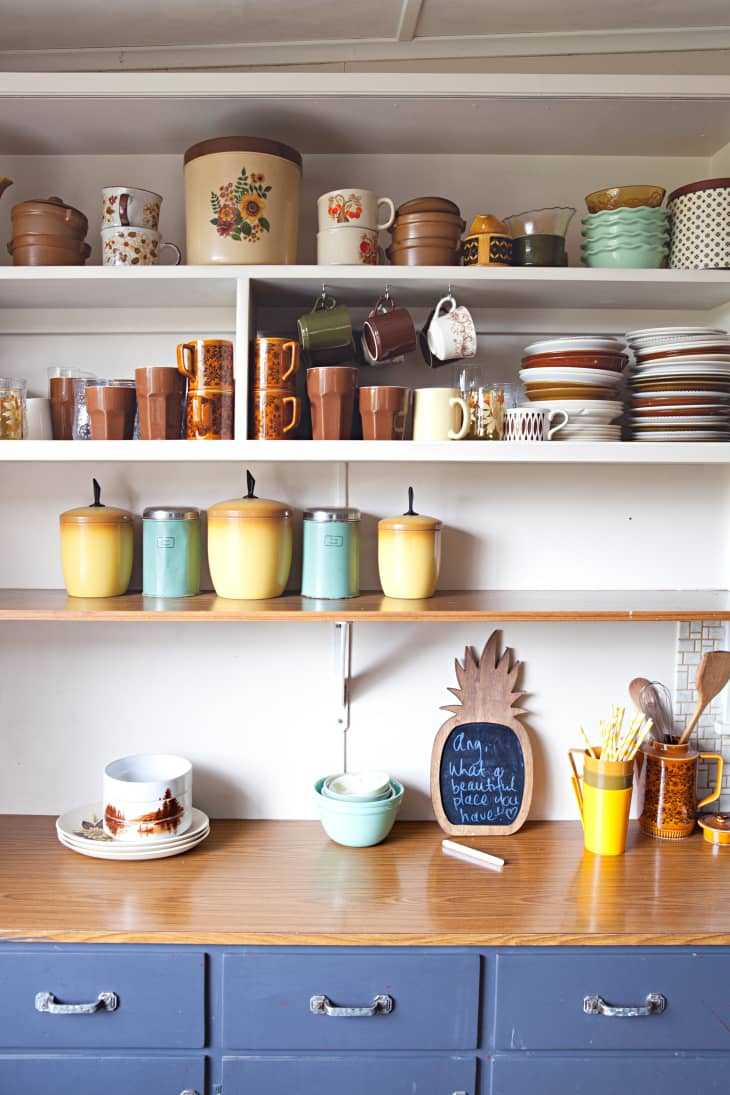When it comes to your time in the kitchen, you’ve cultivated a handful of good habits for shopping, prep, cleanup, and storage — but you’ve probably developed a few bad habits too. Hey, it happens to the best of us, and nobody’s perfect! However, some of these habits should be stopped ASAP, especially if you want to build good food-safety habits or you share a space with another person.
We asked kitchen experts and cooking enthusiasts to share the habits and behaviors that drive them up the wall — if you’re currently doing any of these things, it’s easy to make an effort to stop and change for the better. Suddenly, your kitchen will be a more pleasant, harmonious space.
Don’t: Use the counter as a cutting board.
Chopping up veggies for dinner? Make sure you’re doing it on a designated surface! “[Cutting] things directly on the counter with no cutting board, plate, or even a napkin … it’s bad for knives, and also messes up the counters,” says Gabrielle Costa of Los Angeles, California. Whether you choose wood or plastic, any cutting should be done on a board — and if anyone in your household has food sensitivities or dietary needs, it’s helpful to designate certain boards to certain foods, such as poultry, dairy, and produce. Your countertops will thank you.

Don’t: Let knives go dull.
Prep is so much easier when your tools are up to the task. Karon Liu recommends getting knives professionally sharpened at least once a year — you can Google around for a knife sharpener in your area. “Most home cooks have dull knives that are useless or a slip waiting to happen,” he says. Grab a whetstone if you prefer sharpening at home, but watch a demo video before to make sure you’re sharpening safely.
Don’t : Neglect cleanup chores.
Washing the dishes after dinner can be a dreaded chore, but if you prep properly, you can wash smarter, not harder. Alexandra Jones of Philadelphia says “not running a sinkful of soapy water to wash dishes properly” is her pet peeve. “My husband is the resident dish-doer, and he very thoroughly and slowly scrubs each item with a soapy cloth.”
Nothing is worse than standing at the sink scrubbing away caked-on food crust, but there’s a simple solution. “Rinse! Your! Dishes! Before! Putting! Them! In! The! Dishwasher! Or! Sink!” advises Alexandra List of Portland, Oregon. One quick little rinse could save you a ton of time — or an extra dishwasher cycle.
Spoon rests are great to help keep surfaces, including the counter and stove top, tidy while you’re making sauces, soups, and more, but once the meal is over, that handy little dish should be washed alongside everything else. “In one apartment I had, we had to ban the use of it,” says Rachel Greenberg of Los Angeles.
Kate McGarry of Los Angeles has a similar rule in her kitchen: “If you decide the kitchen towel is dirty and needs to be washed, you are responsible for replacing said towel!” she shares. “Otherwise the next person comes in and ends up with wet hands or dishes while searching for a new towel.”
Don’t: Use the same sponge for… everything.
“[Using one sponge] to clean EVERYTHING: the dirty dishes, but also the countertops, food that falls on the floor… it drives me crazy!” says Stephanie Knight of New York. If you’re guilty of this, try swapping your sponge for a dish brush at the sink and use a dishcloth or special “cleaning-only” sponge on the countertops.
Don’t: Go too long without decluttering your kitchen.
Between gadgets for this and tools for that, the kitchen is one place that things tend to pile up in — and that can be detrimental to your cooking routines. “One of the things we fight to avoid in professional kitchens is the ‘junk drawer’ effect,” says chef Daniel Cox of The Grill at Sage Lodge in Park County, Montana. “Eliminating catch-all areas and having a home for all things needed in your kitchen is crucial.”
He advises asking yourself how often you use a tool or gadget; if it’s daily or a few times a week, keep it in the kitchen. If it’s less frequently used, store it elsewhere or consider finding it a new home. “In a professional kitchen or in your home kitchen, less is more,” he says. “Finding the proper way to make a space work better for you is crucial in creating a space conducive to creativity and efficiency.”
Don’t: Settle for subpar ice.
If you’re safely entertaining guests or simply kicking back after a rough day, something as simple as ice — yes, ice! — can make a huge difference. “Terrible ice is the bane of my existence! I strongly believe that no one should serve a cocktail with homemade ice,” says Hilary Hannon of St. Paul, Minnesota, who adds that this rule includes automatic freezer ice. “[Freezer ice] is so filled with air bubbles that they melt in like two seconds, and no matter how clean and tidy people are, if there is food in your freezer, then ice can take on a taste or scent.” When it comes time to throw that post-pandemic party, you might want to pick up a bag of ice for better drinks, or invest in a good set of ice molds.
